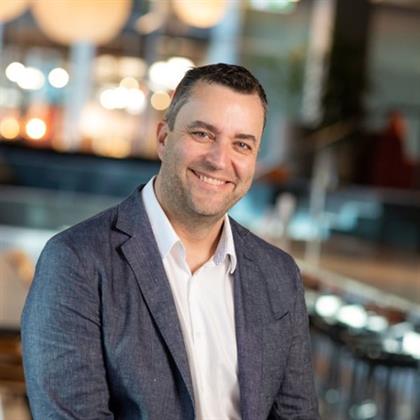Despite challenges, potential changes in VET are electrifying
David Bowser
CEO
More of our thinking
Our Educate Futures podcast
Educate Futures, the podcast where Curio explores innovations in learning and teaching.
A service design approach to content creation and management: downloadable template
Use this template board to place content decisions in the context of an over-arching service design, informed by the desired business outcomes that drive content creation and the people, resources and technology available to support.
The importance of high-quality online facilitators
With the rise of online learning, the demand for expert online facilitators has become significant. Curio Academy understands what it takes to be an expert in online facilitation and encourages aspiring and experienced online facilitators to refine their skills to stay current within the innovating education sector.
The OfS blended learning report: meeting the challenge
Is now the perfect time to reimagine the student experience in higher education? This week the Office for Students published its Blended Learning Review, which is significant for higher education strategy in the UK. University leadership teams in the UK are seeking to respond to the findings and recommendations of this report. Key points that jump … The OfS blended learning report: meeting the challenge
Balance leadership and corporate development resources during transformation
Don’t fall for a mismatch in learning and development resources allocated to leadership and corporate functions. Involve all departments in change management at the outset to plan effective learning and development initiatives with a thorough understanding of capability and skills gaps, alongside business priorities.
World class educational thinking, trends and more.
Student Experience for Distance Education at OLC 2024
The Curio team had a great time at OLC Innovate. We enjoyed hearing from so many instructional designers, academics and administrators alike about the tools and processes they’re using to craft exceptional learning experiences. Many thanks to Chris Malmberg from Unity Environmental University, who joined us to showcase how we co-designed the student experience for … Student Experience for Distance Education at OLC 2024
Building a university homepage using an iterative UX design process
Our Digital Director Michael Frantzis discusses a past project of his, redesigning University College London’s homepage with Independent Design Director, Will Kruger and UX Consultant Marcos Villasenor. The project involved extensive user testing to iteratively improve the page design and refine content. The result was a beautiful, user-friendly landing homepage that saw some impressive results.
Skills Passport Curio Group Submission
The National Skills Passport stands as a transformative tool that could significantly streamline the recognition of qualifications and credentials, serving as a bridge between learners’ achievements and employers’ needs. By facilitating a more efficient verification process, the Skills Passport promises to reduce the administrative burden and costs associated with credential validation. Key Principle … Skills Passport Curio Group Submission
Unlocking Digital Transformation: Insights from Education Experts
In a dynamic panel session at Digifest 2024 in Birmingham, the participants discussed the concept of “frictionless learning” and its implications for education in the digital age. The panelists included Michael Frantzis from Curio, Neil Stapleton from Cambridge Judge Business School, Julia Leong Son from University of London Worlwide, and David White from University Arts … Unlocking Digital Transformation: Insights from Education Experts
Why Student Evaluation is Broken: Using Cookies and Science
Learning Experience Lead, Tom Whitford, reminds us why student evaluation survey results shouldn’t be taken at face value. This article highlights key variables which can distort student feedback findings and results, one being supplying sweet treats during the survey! Have a read to find out more.
“Now, it’s a lot harder” : Unpacking the student perspective on the recent lockdown of UK campuses
In 2020, we interviewed UK students to find out their perspectives on the changes to their educational offerings in response to COVID-19 and discuss what institutions need to do to going forward. From listening to these students and reflecting on their views, we have put together some key takeaways and suggestions universities should take on board as they start to prepare for Semester 2.
Charting a Course for Australia’s Future: The Universities Accord
The Australian Universities Accord seeks to be a game-changer for the nation’s future, signalling a monumental leap in higher education strategy and policy not seen since the Bradley Review. It’s an ambitious playbook for improving Australia’s economic, social, and green credentials. Here’s the Curio summary: By 2050, we’re talking about increasing the number … Charting a Course for Australia’s Future: The Universities Accord
Celebrating Curio’s journey of five years
CEO, David Bowser’s reflections of what we have learnt over the past 5 years.
Why you have heard the words ‘learning design’ more than ever before, and why it is here to stay
After the events of 2020 and 2021, there is newfound respect, admiration and awareness of the work done by educators. Teachers have been the backbone of higher education institutions for many years, but they have found a new relevance in supporting students through the post-pandemic landscape.
Despite challenges, potential changes in VET are electrifying
The post-pandemic economic and humanitarian recovery gives all stakeholders a unique moment to reshape the VET sector and strengthen VET’s potential to ensure Australian businesses of all shapes and sizes have the skills they need to support their growth.


